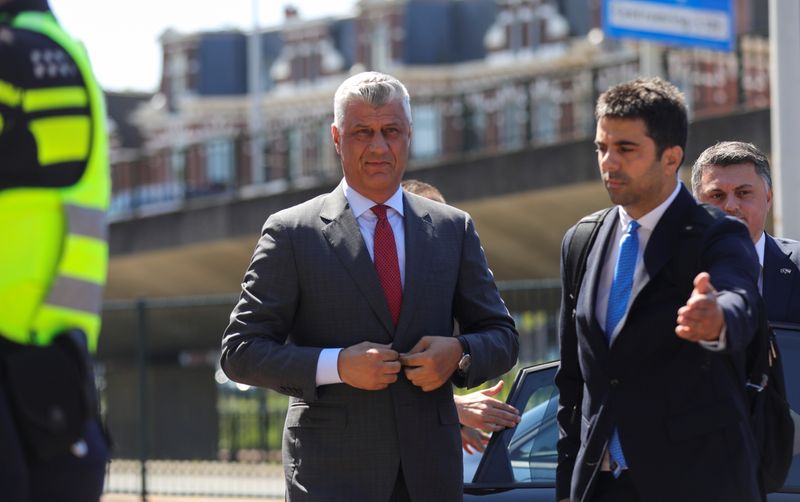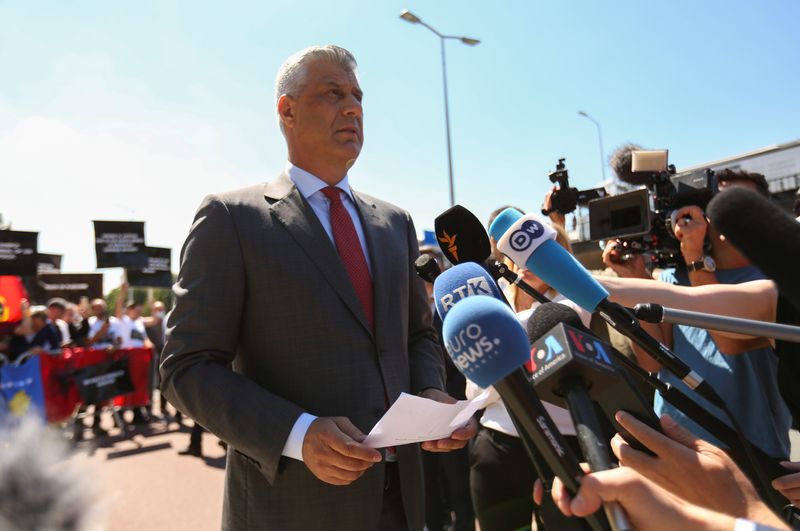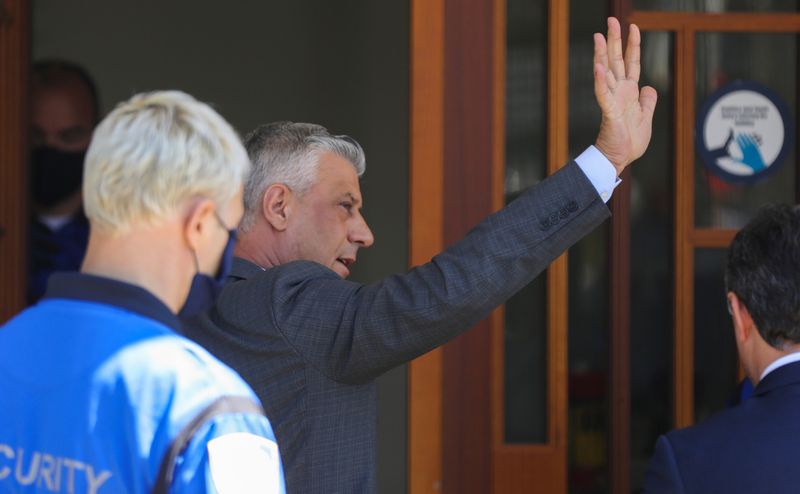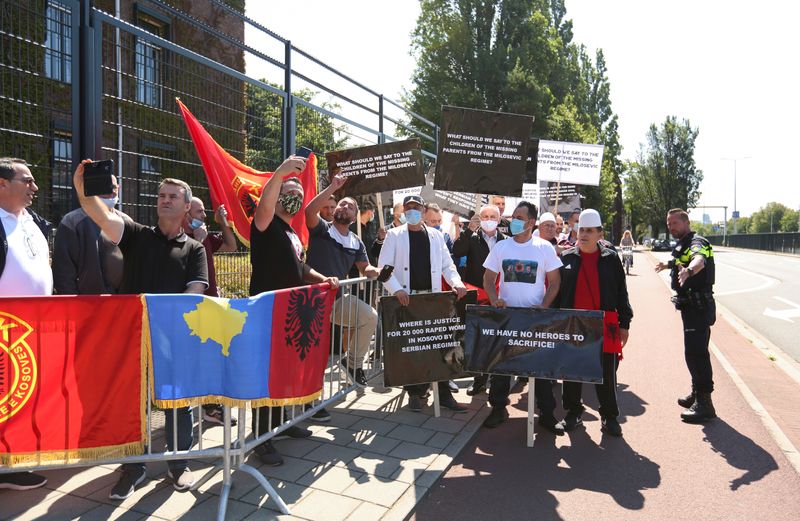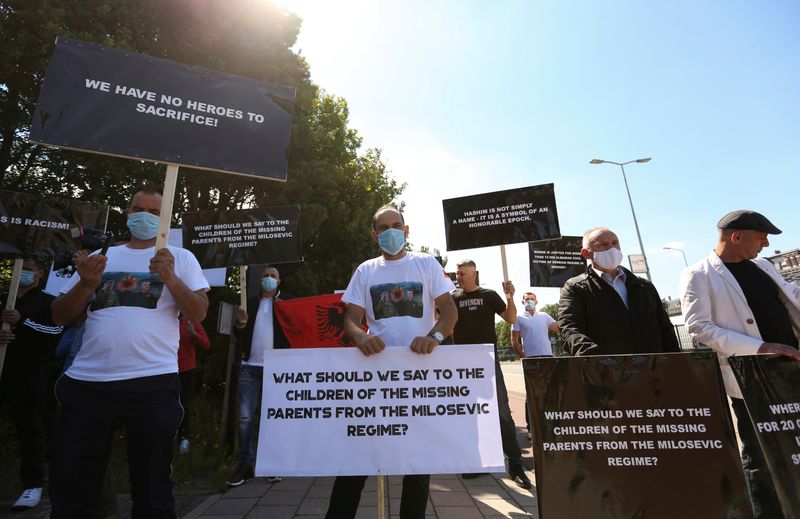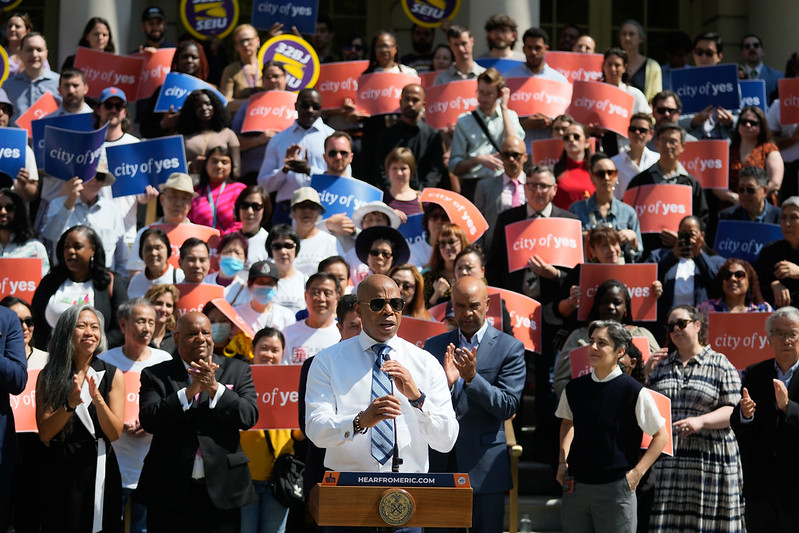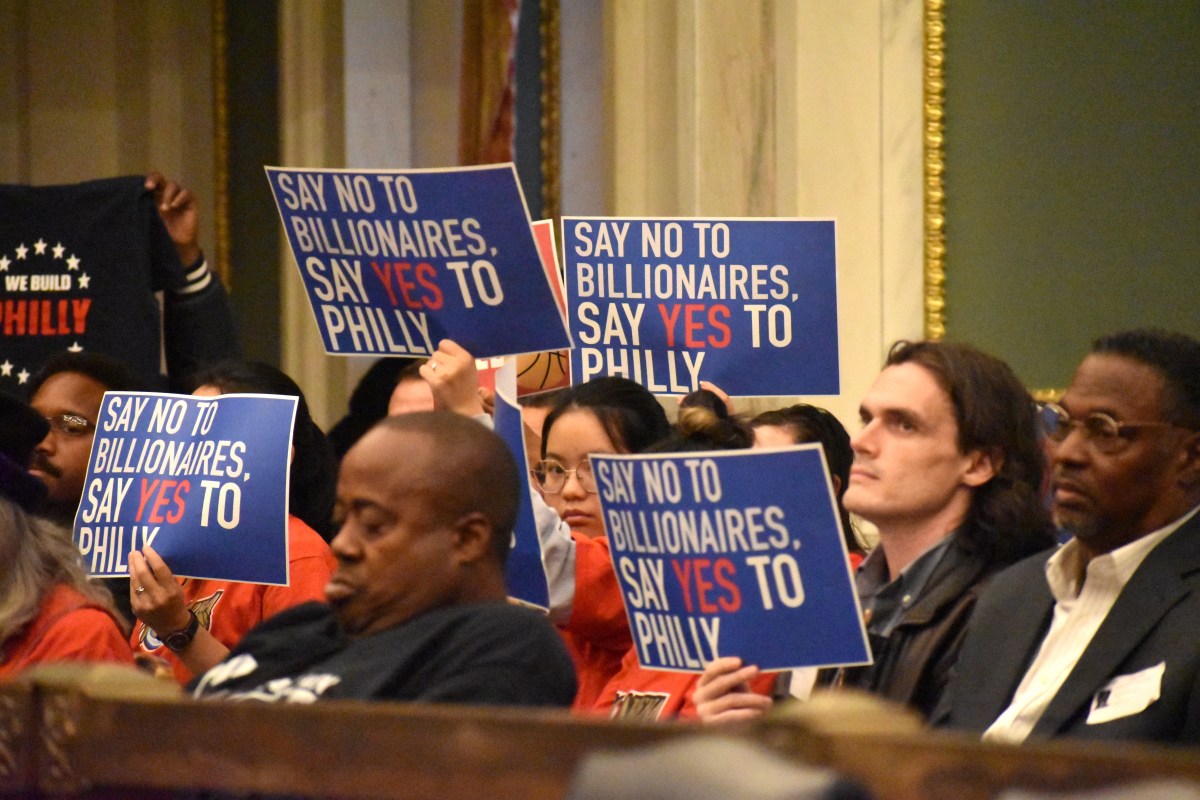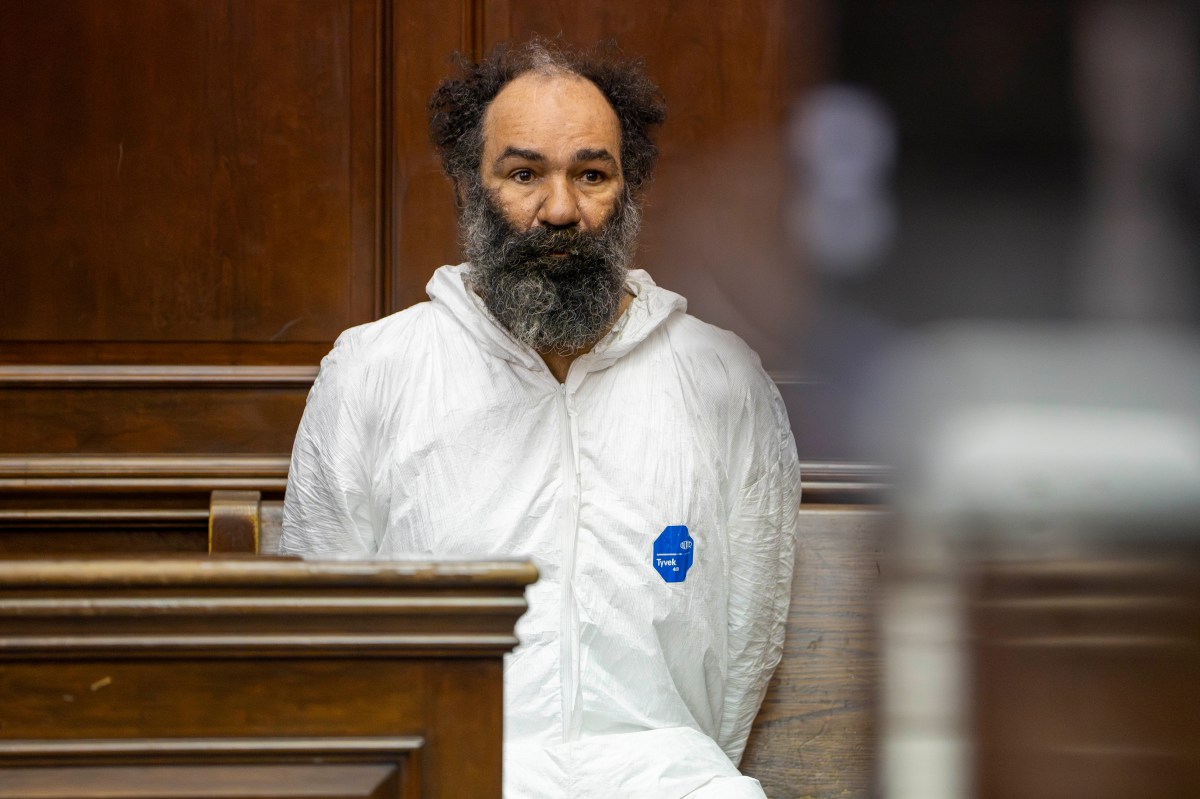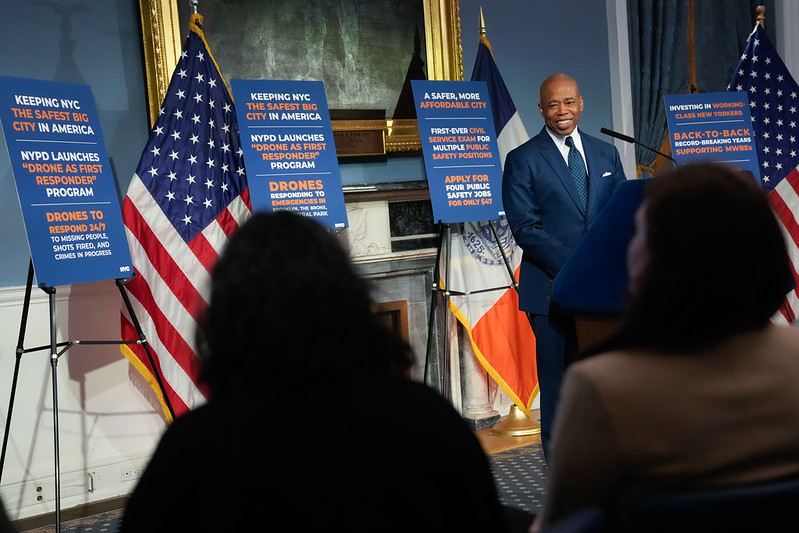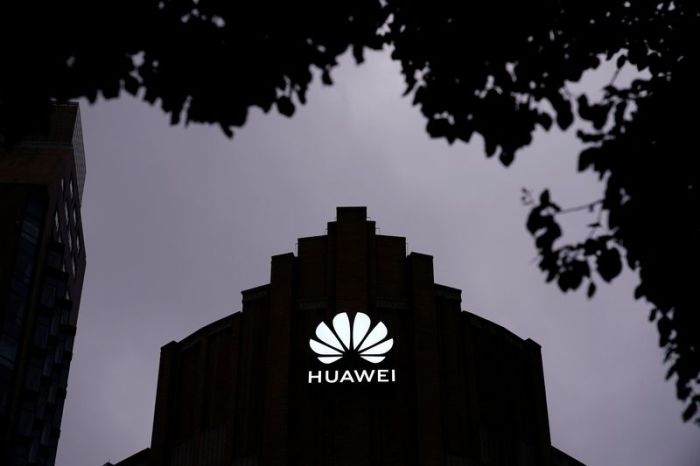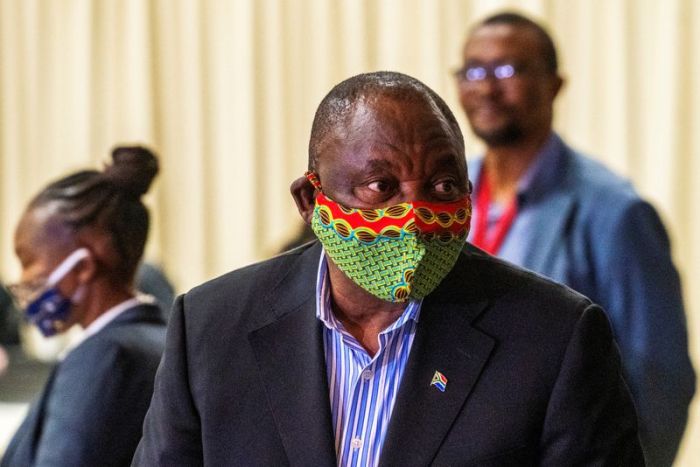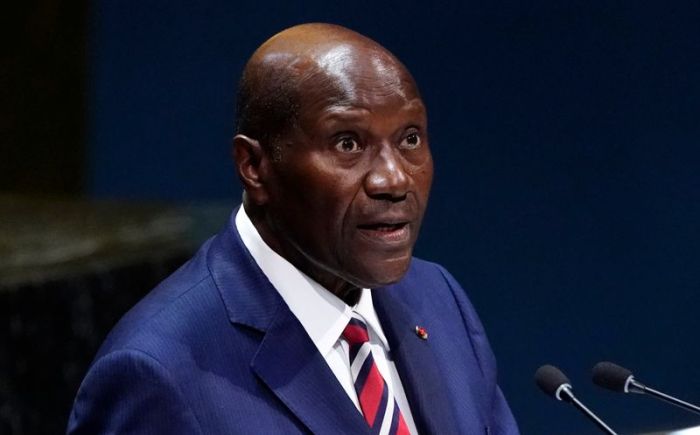THE HAGUE (Reuters) – Kosovo President Hashim Thaci arrived in The Hague on Monday for a meeting with prosecutors who last month indicted him for alleged war crimes and crimes against humanity during Kosovo’s 1998-99 uprising against repressive Serbian rule.
Before entering the Specialist Chamber set up in 2015 to handle cases of war crimes during the revolt that eventually led to independence for Kosovo, Thaci told reporters he stood for “truth, reconciliation and peace”.
Thaci had last week accepted an invitation by the court to discuss the allegations against him. He previously has denied involvement in any war crimes during the conflict.
“Nobody can rewrite history. This is the price you pay for freedom,” Thaci said on his arrival at the Specialist Chamber.
When he left the special tribunal in The Hague Monday night, he said the interview would continue on Tuesday.
The indictment, which also covers alleged crimes against humanity, is not final and a judge will take several months to decide whether the case built by the special prosecutor’s office is strong enough to put him on trial.
Prosecutors hold Thaci, former top commander of the Kosovo Liberation Army (KLA) guerrilla group, responsible for nearly 100 murders of civilians during the war.
Around 20 ethnic Albanians demonstrated outside the Chamber in support of Thaci, waving Kosovo and Albanian flags and chanting “U-C-K” – the Albanian language acronym for the KLA.
The Kosovo Specialist Chamber is governed by Kosovo law but is staffed by international judges and prosecutors.
War crimes allegations against the KLA first surfaced in a 2011 report by the Council of Europe rights agency that accused guerrillas of killing civilian Serbs and ethnic Albanian political opponents during the insurrection.
Local efforts to investigate alleged war crimes have so far been foiled by widespread intimidation in the tiny Balkan state, where clan loyalties run deep and former rebels are lionised.
(Reporting by Stephanie van den Berg; Writing by Bart Meijer; Editing by Mark Heinrich and Tom Brown)

